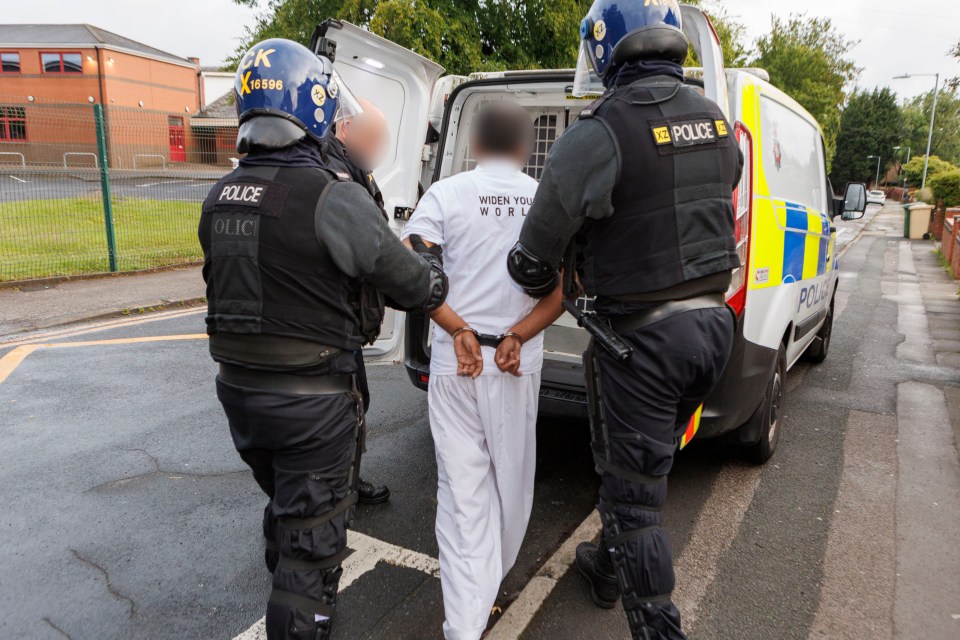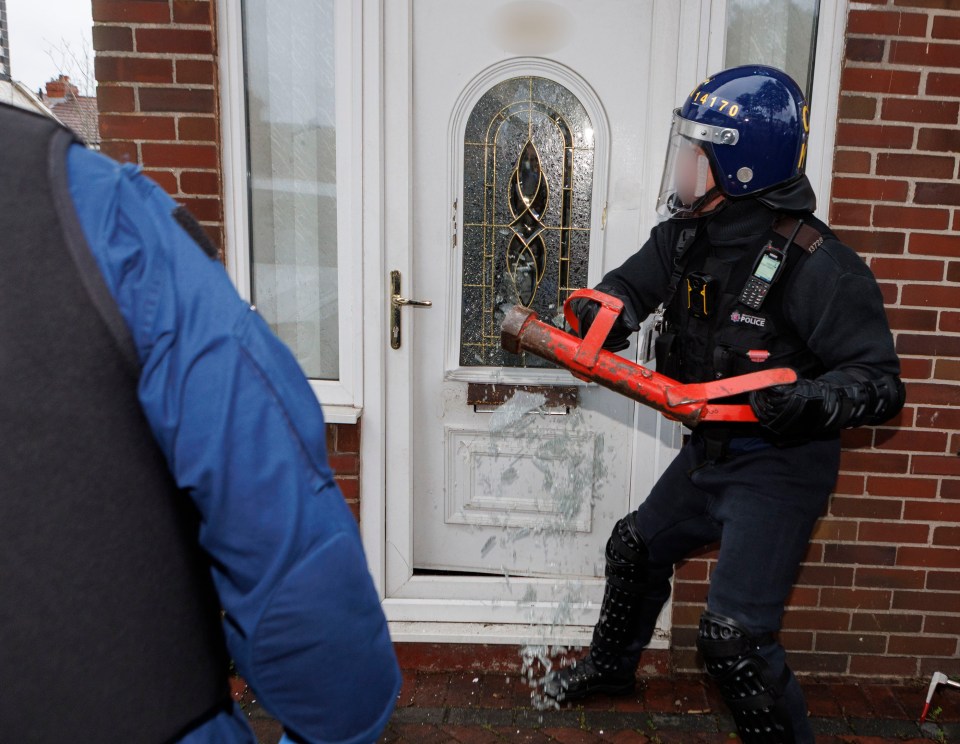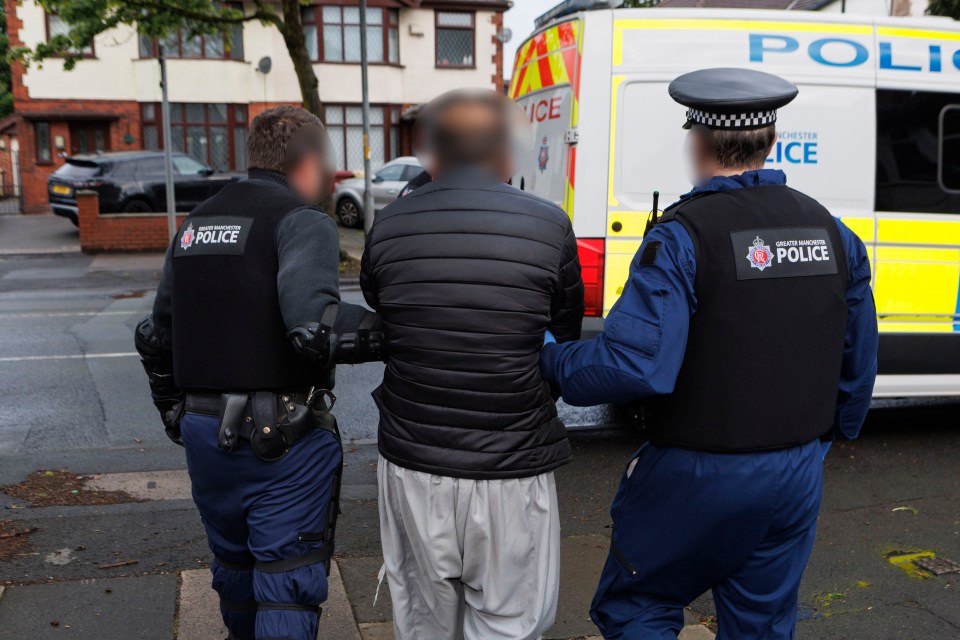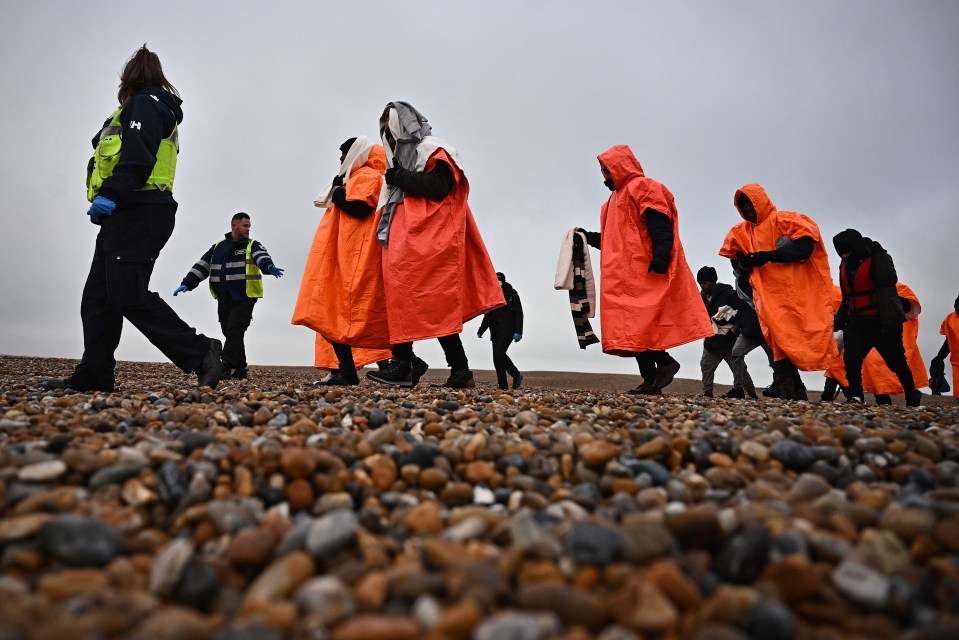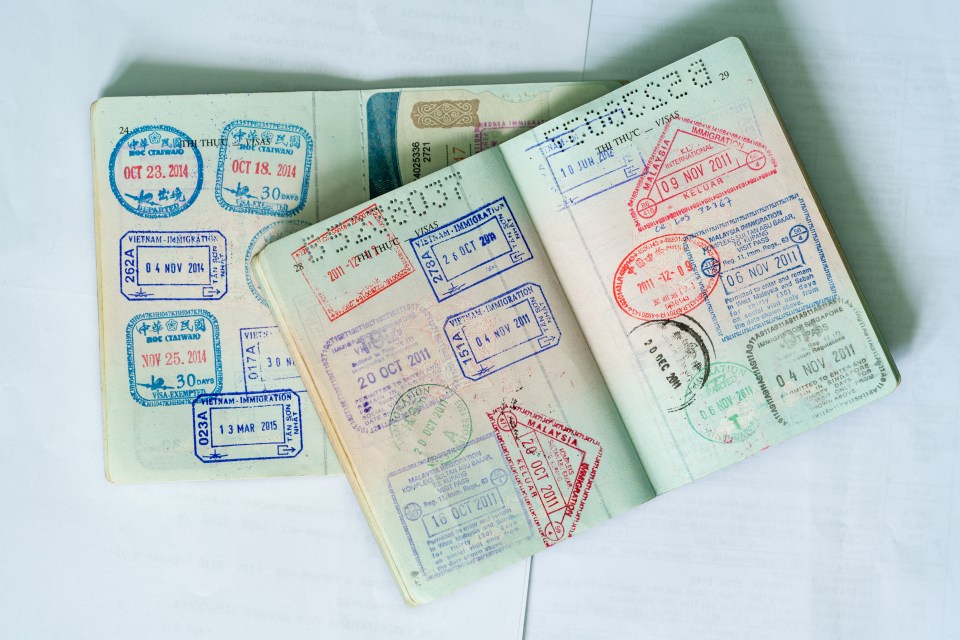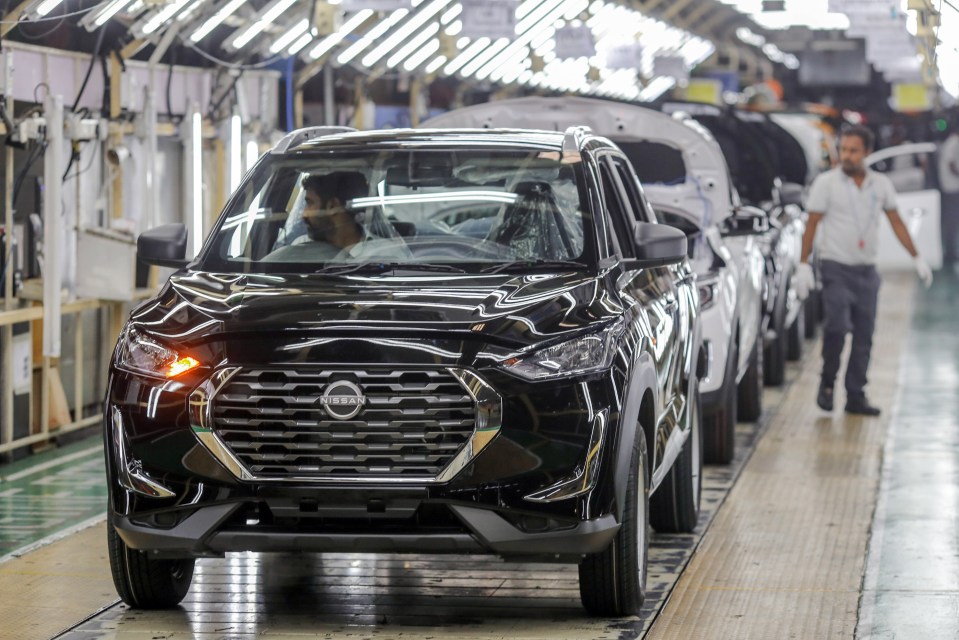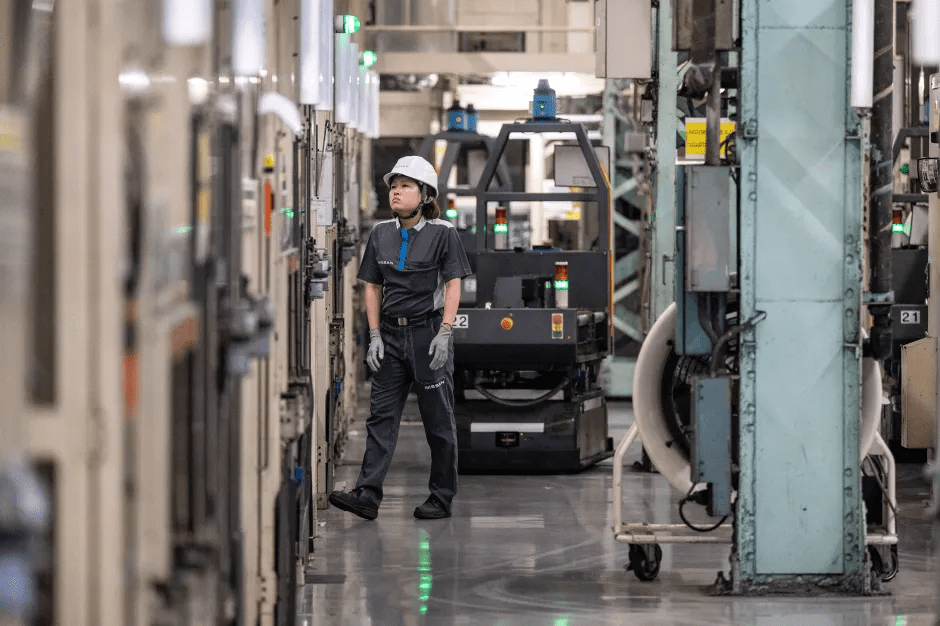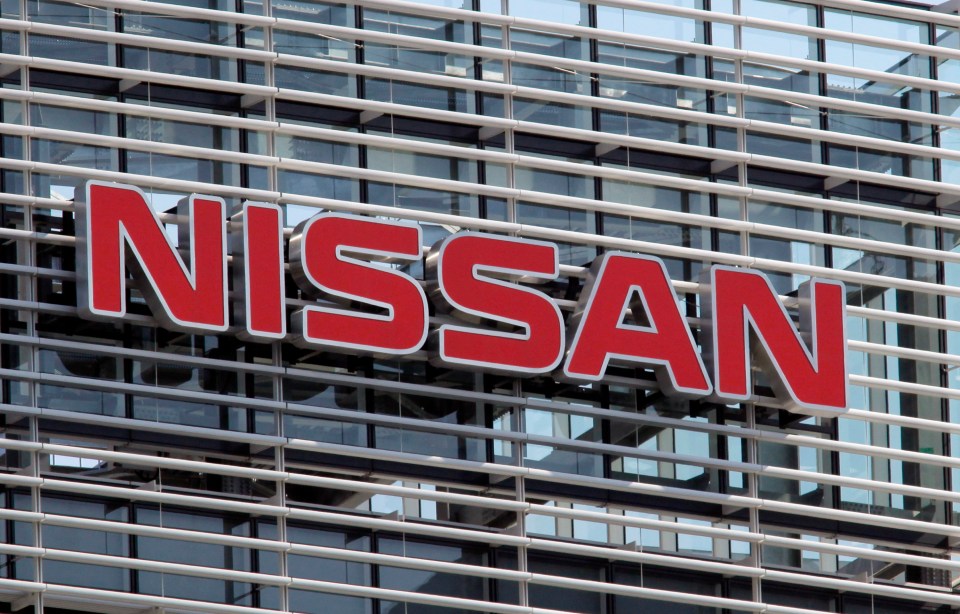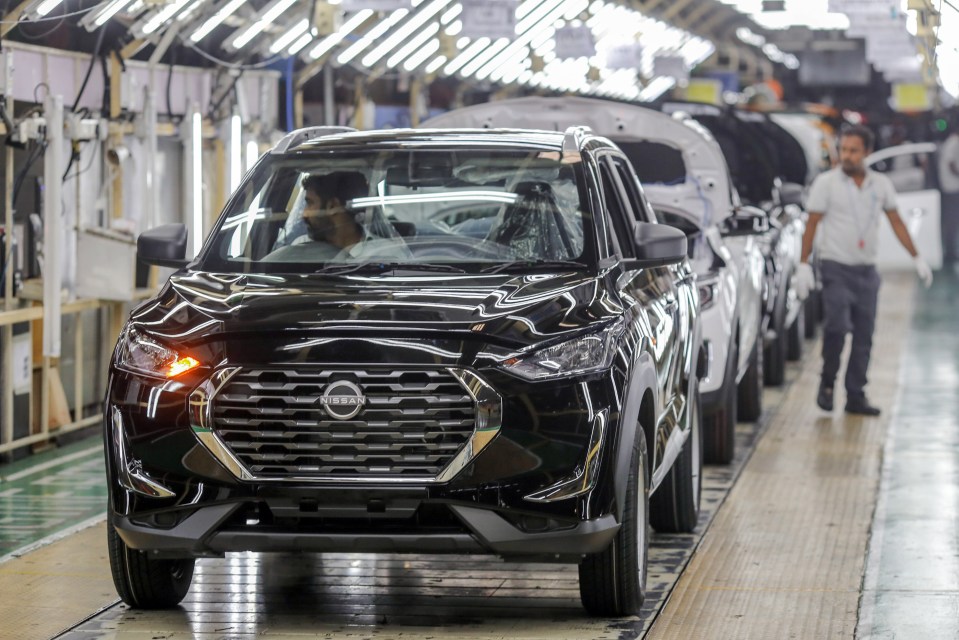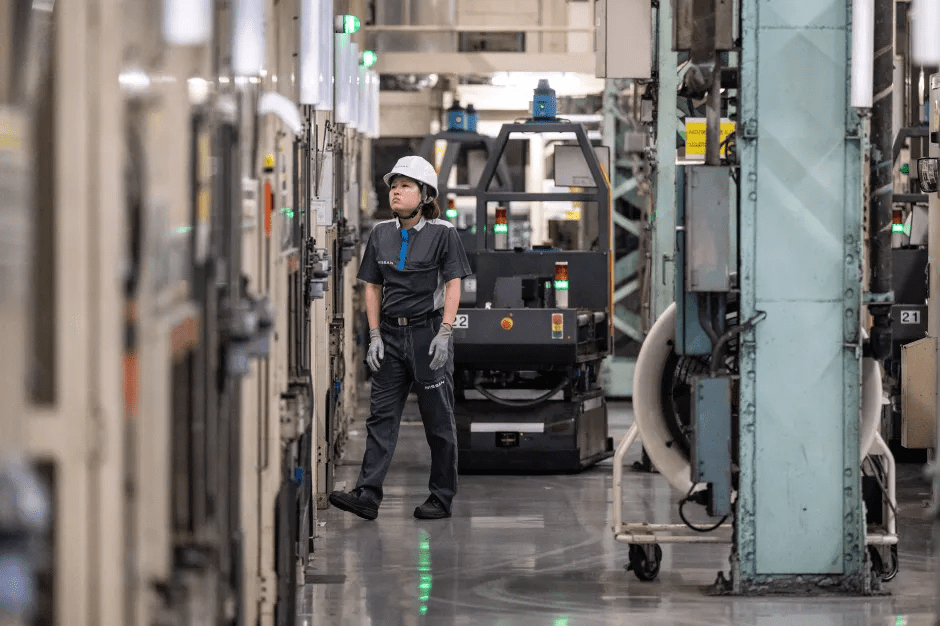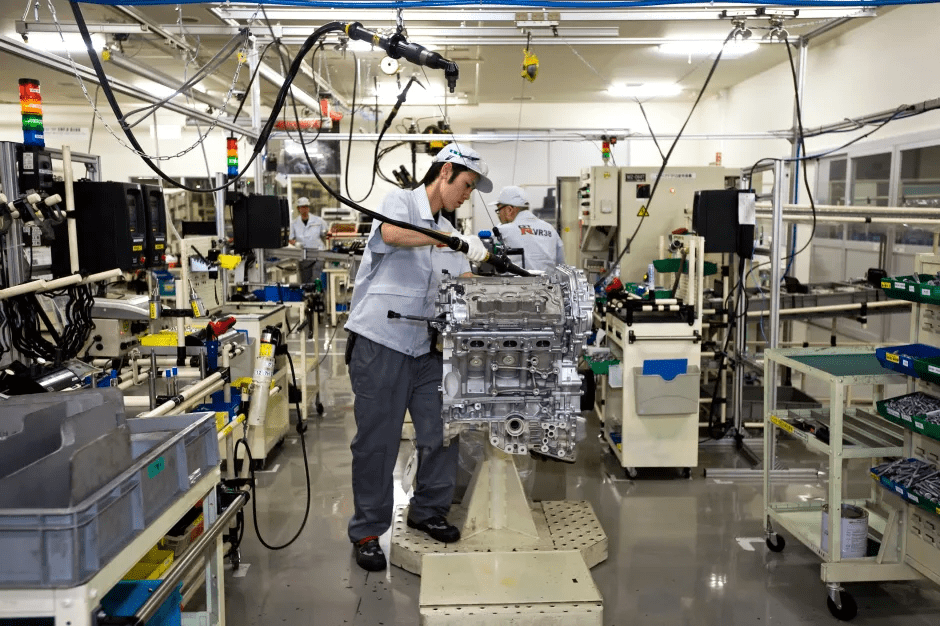How illegal migrants are paying £20k to fly into the UK using fake papers before disappearing in new border threat
APPROACHING British passport control, a mum grips her young daughter’s hand nervously.
She fidgets with the documents they hope will fool airport officials into letting them through.
With her eyes darting nervously and head hung low, it doesn’t take long for border control officers at Manchester airport to clock something is not quite right.
And on closer examination, it is clear the paperwork is forged.
Immediately, they are blocked from entering the UK.
But while this mum and daughter failed, there are plenty more queuing up to take their place — and the majority are Iranians, cops believe.
READ MORE ON MIGRANT CRISIS
And far from risking death in treacherous boat journeys across the Channel, these chancers are prepared to pay £20,000 for a forged document pack enabling them to travel to the UK from airports all over Europe.
Many will get through — mysteriously disappearing once they have conned their way through customs.
Or they will dump their forged or stolen documents and immediately head to the closest immigration office to beg for asylum.
But on this occasion, Greater Manchester Police were called and an investigation — named Operation Alfriston — was quickly formed.
Its aim is to discover who these ruthless smuggling gangs are and how they operate across the UK.
This week The Sun was invited to watch as cops smashed down doors and arrested the crooks they believed had been trafficking untold numbers of illegal immigrants into Britain.
At 6am yesterday, 129 GMP police officers, alongside seven immigration compliance and enforcement officers, stormed 15 different addresses.
They arrested eight men, between the ages of 18 and 52, and two women, aged 32 and 43, all allegedly involved in a conspiracy to facilitate a breach of immigration law by assisting illegal entry into the UK.
If charged and found guilty, each member could face life in prison for their role in the smuggling ring.
‘I think we’re just scraping the surface’
The arrests took place in Greater Manchester — Bolton, Sale, Bramhall, Salford, Leigh and Cheadle — and Cricklewood, North London.
We saw cops from the Tactical Aid Unit shatter a glass door and then break down an internal one to enter a property in Bolton.
They alerted the occupants to their arrival with shouts of “police” as they marched inside in full protective gear.
Greater Manchester Police’s Head of Intel, Detective Chief Superintendent John Griffith, told The Sun: “Tackling immigration crime has become a priority for us. With the arrests yesterday morning, I think we’re just scraping the surface.
“By focusing on gathering intelligence on the infrastructure around how people are entering the UK illegally, hopefully we can deter other people from doing it.”
Often people who are smuggled into the UK will end up working for little money at businesses such as car washes, nail bars and hairdressers. DCS Griffith, who has a background in counter terrorism, added: “These people are hugely vulnerable.
“If you can imagine some of the travelling conditions that they will have faced across Europe when coming into the UK — to put up with that, there must be a real desire to get here.
“That desire often transfers into a willingness to pay a lot of money to individuals to facilitate that entry, irrespective of the success of that entry or not.
“There are numerous individuals who have paid these facilitators and actually have never arrived in the UK, but continue to engage with them and pay them just for the attraction of coming here.”
Not long before Christmas last year, the ringleader of an organised crime gang dealing with migrants was picked up at the airport and flagged to police.
At the time, he was not arrested. Instead, cops gathered intelligence so that when they struck, they could take out all the key players.
While this is technically smuggling, it sits in a grey area that shares characteristics with modern slavery.
Justine Carter
The crook did most of his communications in the Persian language Farsi, adding a stumbling block for the team of 12 police officers.
For fake documents or stolen identities and paperwork to enter the UK via an airport, the group was charging around £20,000.
Investigation leader Detective Chief Inspector Tim Berry told The Sun: “Our main suspect, who is actively involved in facilitating people into the UK, is generally using false documents of various nationalities.
“To do that he needs a number of people around him to facilitate and support with various elements, such as supplying false documents, booking travel, moving monies — that kind of thing.
“We know that he’s offering the full package for around £20,000. It’s that profit that motivates organised crime gangs to do this kind of work.”
The Manchester force has spent thousands of man hours to identify all the key players in the group, with their tentacles extending as far as Cricklewood.
Police believe most of the people who have paid the extortionate fee to travel safely through the air, rather than crammed on a small boat in the Channel, are of Iranian nationality.
But not all the fake documents work, meaning the holders are turned away at the border and sent back to the country they have flown in from.
The process of sorting what is sold as safe passage to the UK requires a team of people.
DCI Berry explained: “We have evidence of travel booked by travel agents and our view is that they’re doing that knowing that they’re acting illegally, rather than blindly.
“We’ve also arrested people involved in money exchange services because you have to move money across Europe to pay for these documents.
“A lot of the people arrested fall into the logistics and facilitating category rather than being the organiser.”
‘Exploitation isn’t always visible or physical’
But things could be more sinister than just people smuggling — it is possible that the gang is also going on to exploit the people it has helped to enter the country illegally.
This would fall under modern slavery, where illegal immigrants are forced to work long hours for low pay or be exploited sexually to pay off their debt.
DCS Griffiths said: “Modern slavery in organised immigration crime is interlinked significantly. For me, organised immigration crime is the primary offence.
“People are coming into the country illegally, and we need to stop that collectively through our police action and partnership action.
“But once people are here, they are tied into the country through debt bondage.
“They get pulled into the grey economy as gangs exploiting these people either utilise their labour or engage them even further in criminal enterprise.
‘Ahead of the curve’
“This would be criminality such as drug supply and cannabis farms and other sorts of premises where crimes can be undertaken.”
Traditionally, immigration offences were dealt with by the National Crime Agency, Border Force and immigration enforcement officers.
But with the flood of illegal migrants by boat and other entry points, local police have been asked to step in too.
DCI Berry said: “In recent years, there’s been a real push from the Home Office and from the National Crime Agency for police forces to improve their response to organised immigration crime.
“I would like to think as a force that we’re actually fairly ahead of the curve because we have a dedicated team.
“We absolutely do look to take this work on and we’re still developing an understanding about our work from an intelligence point of view.
“But wherever we get opportunities to investigate this, we will do — because we recognise the risks around it and the vulnerabilities and the harm that can be caused by it.”
Justine Carter, director of strategy and business services at anti-modern slavery group Unseen, said: “While this is technically smuggling, it sits in a grey area that shares characteristics with modern slavery.
“These cases typically involve recruitment, movement, deception, and significant financial exploitation, which can often lead to debt bondage and long-term vulnerability.
“Even without forced labour, the legal threshold for trafficking may still be met if the acts, means and purpose are present.
“In these cases, the purpose is not labour or sexual exploitation, but financial gain through the exploitation of vulnerable people.
“It’s a reminder that exploitation isn’t always visible or physical — it can be economic and deeply systemic.”
The ten people arrested are being interviewed under suspicion of conspiracy to facilitate a breach of immigration law, assisting illegal entry into the country by non-UK nationals in breach of immigration law, conspiracy to money launder and participating in the activities of organised crime.
